
Create Fresh Breath Naturally: The Best Mouthwash DIY Recipes for Everyday Use
Ever had one of those moments where you’re about to meet someone important, and suddenly you’re gripped by the fear of bad breath? We’ve all been there! The usual solution is to reach for a commercial mouthwash, but have you ever thought about what’s in that bottle? Instead, why not step into the world of mouthwash DIY? Not only is it a natural alternative that you can make at home, but it can also be customized to your liking, is eco-friendly, and avoids potentially harmful ingredients found in commercial mouthwashes.
Key Takeaways
-
DIY mouthwash is a safer, cost-effective and eco-friendly alternative to commercial varieties.
-
DIY recipes allow for customization with ingredients tailored to oral health needs.
-
Consult your dentist prior to using DIY mouthwash for tailored advice on oral health care routine.
The Benefits of DIY Mouthwash
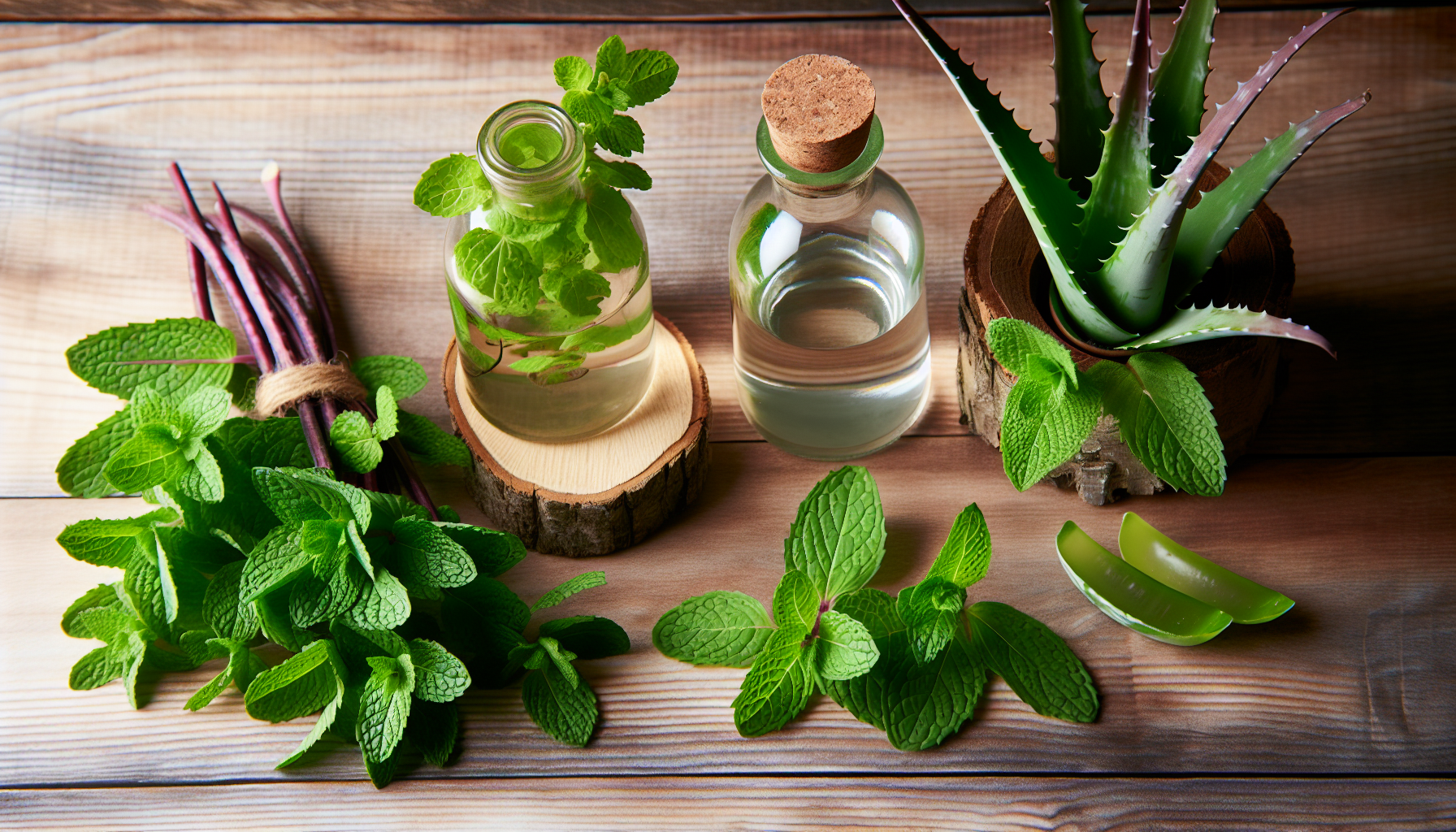
Walking into the oral care aisle of your local supermarket can be overwhelming with the multitude of mouthwash brands. Each one promises the freshest breath or the whitest teeth, but have you considered what’s in those bottles? Many commercial mouthwashes contain potentially harmful ingredients like alcohol, chlorine dioxide, and parabens.
But there’s an alternative that’s not only safer but also more cost-effective and eco-friendly – making your own homemade mouthwash.
Customization
Creating your own mouthwash gives you the advantage of choosing ingredients tailored to your oral health needs. For instance, aloe vera can be beneficial if you suffer from gum inflammation, while baking soda can help combat plaque. The freedom to customize your mouthwash is one of the many reasons why more and more people are turning to DIY mouthwash recipes.
Cost-effectiveness
Using DIY mouthwash not only benefits your oral health but also your wallet. Here are the advantages of making your own mouthwash:
-
Cost savings: Store-bought mouthwash costs approximately $0.66 per fluid ounce. By making your own mouthwash, you can save money.
-
Customization: You can add essential oils of your choice to create a customized and effective solution.
-
Bulk savings: Buying ingredients in bulk can provide additional savings.
Eco-friendly
Creating your own mouthwash helps in minimizing plastic waste by eliminating the need for plastic containers. Instead, you can store your homemade mouthwash in a reusable glass container. Not to mention the eco-friendly properties of the natural ingredients you’ll be using, such as baking soda and essential oils.
Avoiding harmful ingredients
Creating your own mouthwash allows you to exclude potentially harmful ingredients found in commercial products. Aloe vera, for example, has been shown to be effective in treating and preventing gingivitis, while mineral drops can aid in the remineralization of areas that may have been compromised by harmful bacteria. So, not only does homemade mouthwash steer clear of harmful ingredients, but it can also be beneficial for your oral health.
Essential Ingredients for DIY Mouthwash
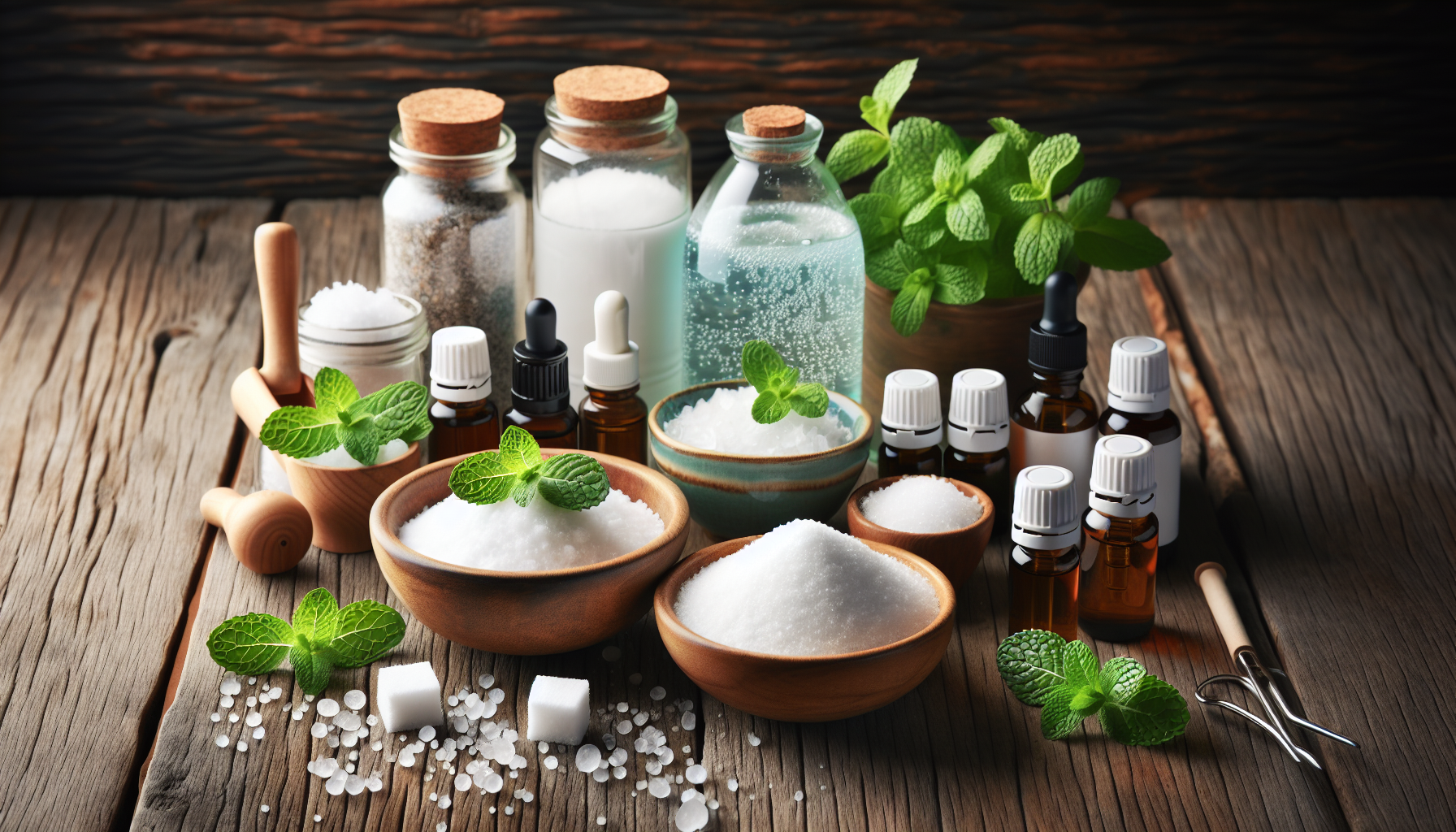
Although creating your own mouthwash may seem complex, rest assured that the ingredients are simple and readily available. Some of the most common ingredients for DIY mouthwash, including grandma’s disinfecting mouthwash ingredients, can be found in various homemade mouthwash recipes. These recipes often include:
-
Baking soda
-
Xylitol
-
Salt
-
Hydrogen peroxide
-
Essential oils
Each of these ingredients plays a unique role in promoting oral health.
Baking soda
Baking soda, also known as sodium bicarbonate, is highly versatile in promoting oral health. It helps with:
-
Neutralizing the acidity in the mouth
-
Making the mouth less conducive to bacteria
-
Preventing tooth decay
-
Promoting a healthy oral environment.
Not to mention, it also helps in balancing the pH in your mouth after consuming acidic foods, such as apple cider vinegar.
Xylitol
Xylitol, a sweetener, has benefits for your teeth besides its pleasant taste. It has been found to help reduce the risk of cavities and make the mouthwash more enjoyable to use.
It’s the perfect ingredient to sweeten your DIY honey mouthwash ingredients without risking tooth decay.
Salt
Although salt may seem like an unlikely ingredient for mouthwash, it offers several oral health benefits. It has antibacterial and anti-inflammatory properties that may aid in addressing gum problems or inflammation, as well as help to remove stains from teeth. Natural salts such as Himalayan salt contain essential trace minerals which could potentially aid in remineralizing teeth. Plus, these trace minerals are not found in more commonly used table salt.
Hydrogen peroxide
Hydrogen peroxide is widely recognized as a teeth whitening agent. It helps by dissolving the stains on the teeth, thus altering the color of the tooth through bleaching. However, it’s important to use it in the right concentration (usually 3%) to avoid any potential harm.
Essential oils
Finally, essential oils are also a key ingredient in herb infused mouthwash ingredients. These little bottles of plant extracts not only add flavor to the mouthwash but also provide various oral health benefits. For instance, peppermint oil provides a fresh feeling and helps combat bad breath, while tea tree oil has antimicrobial properties and can help with gingivitis.
Popular Essential Oils for DIY Mouthwash
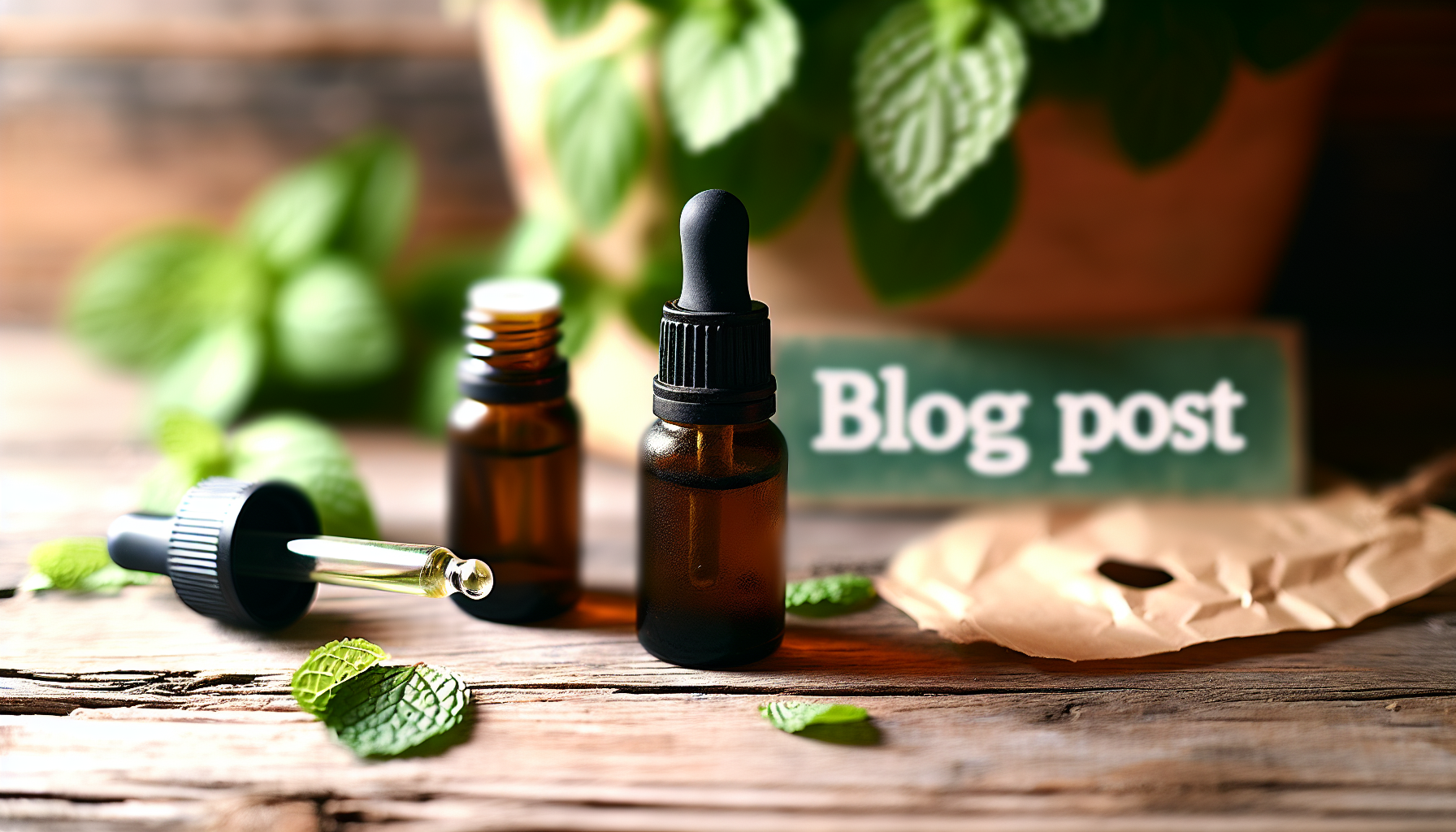
Choosing the right essential oils for your DIY mouthwash, much like a chef selecting the right spices for a dish, can notably boost its effectiveness. Among the plethora of essential oils available, popular choices for DIY mouthwash include:
-
Peppermint oil
-
Tea tree oil
-
Clove oil
-
Lemon oil
Peppermint oil
Peppermint essential oil, with its drops of peppermint essential, is a common ingredient in oral care products, and for good reason. It provides a fresh, cool feeling in the mouth and helps combat bad breath.
So, if you want to turn your DIY mouthwash into a breath-freshening powerhouse, following peppermint essential oil instructions and using peppermint oil is your best bet.
Tea tree oil
Tea tree oil is another valuable essential oil. It has antimicrobial properties that can help control bacteria in the mouth and reduce the number of oral bacteria, as well as reduce bleeding associated with gingivitis.
A few drops of this potent oil in your DIY apple cider vinegar mouthwash can work wonders for your oral health.
Clove oil
Clove oil, with its anti-inflammatory and analgesic properties, can provide relief from toothaches and sore throats. So, if you’re suffering from a toothache or a sore throat, clove oil might be a good addition to your mouthwash.
Lemon oil
Lemon essential oil is known for its antibacterial properties and its ability to freshen breath. It’s the perfect addition to a fresh breath mouthwash recipe and is sure to leave your mouth feeling clean and refreshed.
DIY Mouthwash Recipes for Different Needs
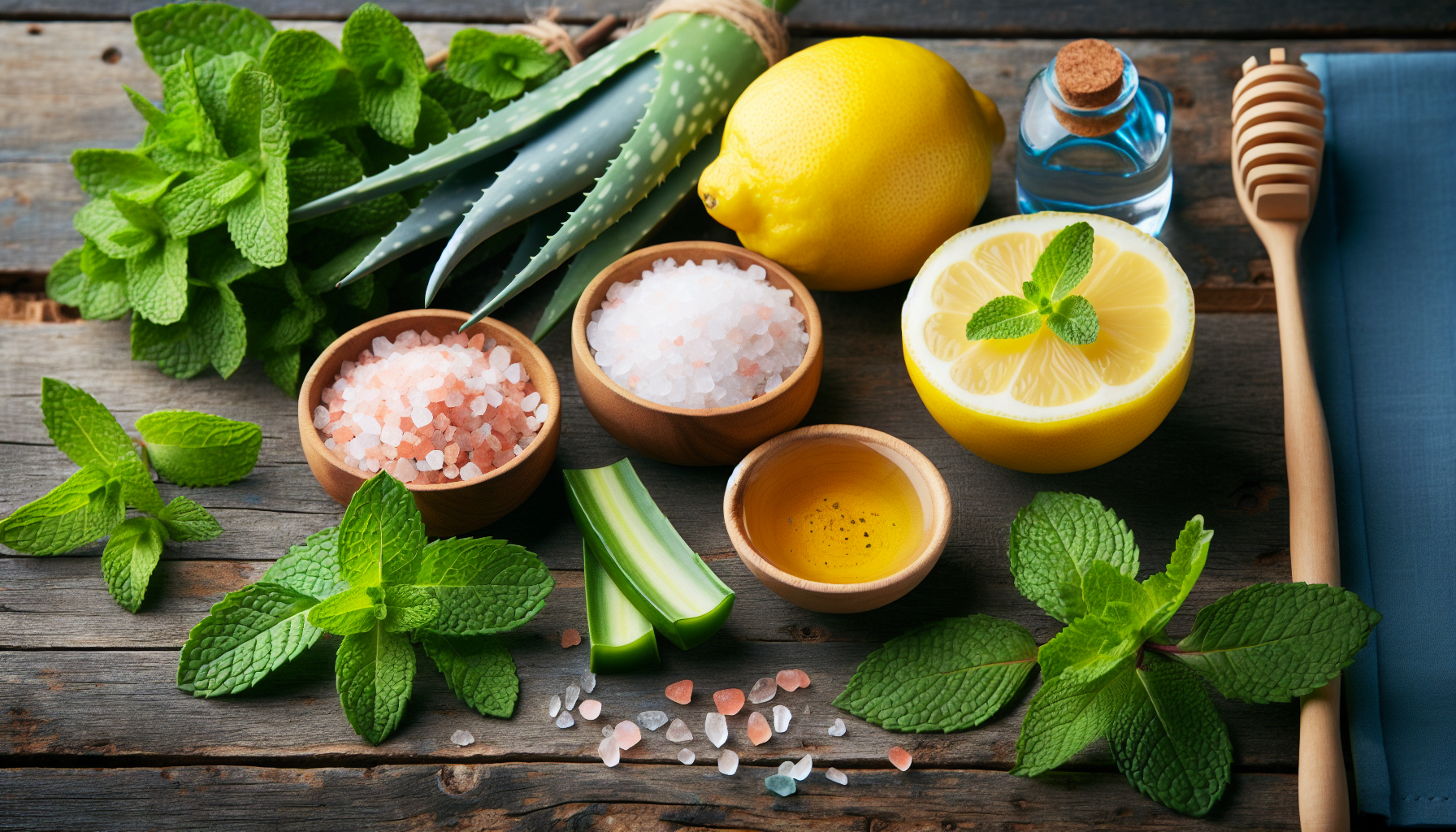
Having familiarized yourself with the essential ingredients and oils for DIY mouthwash, we can examine specific recipes suited to varied needs. There are four main types of DIY mouthwash recipes that you can create based on your specific oral needs:
-
Whitening mouthwash
-
Anti-cavity mouthwash
-
Soothing mouthwash
-
Fresh breath mouthwash
Whitening mouthwash
If you’re seeking to brighten your smile, a whitening mouthwash could be ideal. The key ingredient in this type of mouthwash is hydrogen peroxide, which can help remove stains and brighten teeth.
Paired with baking soda and calcium carbonate powder, which can also help whiten teeth, this mouthwash is a natural and effective way to get that gleaming smile.
Anti-cavity mouthwash
If you’re prone to cavities, an anti-cavity mouthwash could be your new best friend. This type of mouthwash uses ingredients like xylitol and fluoride, both of which have been found to help prevent tooth decay. So, while you’re freshening your breath, you can also be preventing cavities.
That’s a beneficial situation indeed!
Soothing mouthwash
If you’re experiencing oral discomfort, a soothing mouthwash could provide relief. Ingredients like aloe vera and clove oil can help reduce inflammation and alleviate pain. Not only does this mouthwash soothe your mouth, but it also promotes oral health by preventing bacterial growth.
Fresh breath mouthwash
Finally, we have the fresh breath mouthwash. As the name suggests, this type of mouthwash focuses on combating bad breath. Ingredients like peppermint and lemon oils not only provide a refreshing taste but also help to eliminate bacteria causing bad breath.
A swish of this mouthwash, and you’re ready to face the world with fresh breath!
How to Use and Store DIY Mouthwash
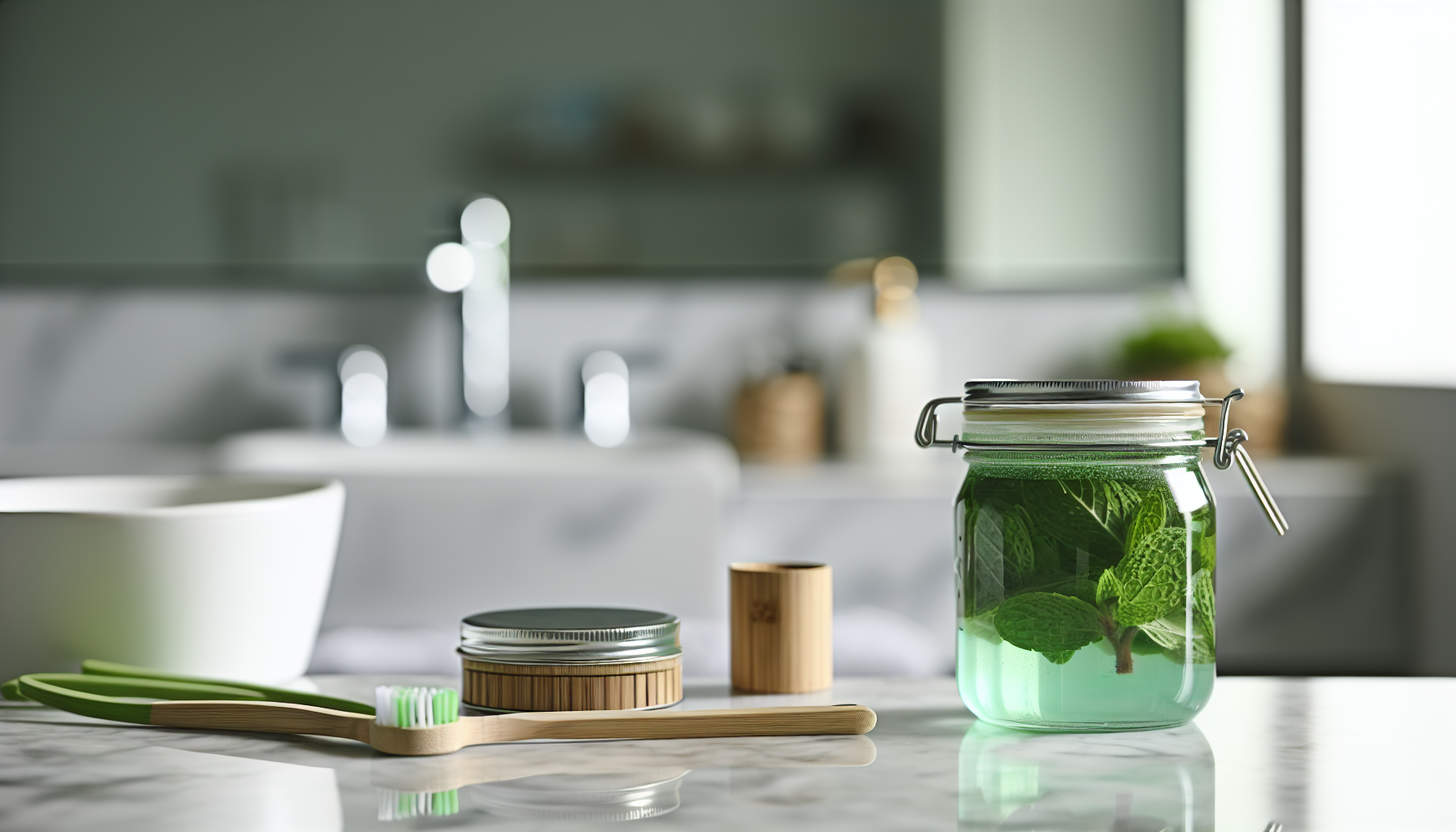
With your DIY mouthwash prepared, let’s learn the proper usage and storage methods, including apple cider vinegar instructions. Proper usage and storage are essential to maintain its effectiveness and extend its shelf life.
Usage tips
Timing is key in using DIY mouthwash effectively. It’s suggested to use DIY mouthwash 30 minutes after brushing your teeth for optimal results. And while it might be tempting to use your mouthwash several times a day, it’s recommended to use it up to three times daily. Remember, consistency is key to seeing results.
Storage tips
Proper storage of your DIY mouthwash is as important as its correct usage. While DIY mouthwash does not require refrigeration, it’s important to store it in a cool, dark place to maintain its effectiveness. And always remember to give it a good shake before each use!
Precautions and Considerations
Health considerations necessitate certain precautions when preparing and using DIY mouthwash.
Essential oil safety
Essential oils are potent substances and should be used with caution. When incorporating essential oils into your DIY mouthwash, it’s important to adhere to accurate dilution guidelines to avoid any potential adverse effects.
Also, some essential oils may have a bactericidal effect that could adversely affect the health of the oral microbiome.
Allergies and sensitivities
Before you start creating your own mouthwash, it’s important to be aware of any allergies or sensitivities to the ingredients. If you have any known allergies or sensitivities, it’s best to omit those ingredients from your recipe or choose another recipe that doesn’t include those ingredients.
Consulting a dentist
Lastly, consulting a dentist before using DIY mouthwash is always advisable. A dentist can evaluate your oral health and offer tailored advice based on your individual requirements.
Remember, while DIY mouthwash can be a great addition to your oral care routine, it’s not a substitute for regular dental check-ups.
Summary
In the world of oral care, DIY mouthwash emerges as a natural, cost-effective, and eco-friendly alternative to commercial mouthwashes. With a myriad of benefits, including customization, avoiding harmful ingredients, and the opportunity to cater to specific oral health needs, DIY mouthwash is certainly worth exploring. So, why not give it a try? Your smile and the environment will thank you.
Frequently Asked Questions
What can I gargle with if I don’t have mouthwash?
Mixing salt with lukewarm water is a natural and effective disinfectant, fighting off gum inflammation and bad breath. To make a salt water gargle, combine 1/2 to 3/4 of a teaspoon of salt with a glass of warm water.
What is a natural antiseptic for your mouth?
Salt water mouthwash is an effective, natural antiseptic for your mouth, which can help wash away bacteria and fight off gum inflammation. Make your own by adding 1/2 to 3/4 of a teaspoon of salt to lukewarm water.
Is it better to gargle with Listerine or salt water?
Most dentists recommend gargling with salt water over Listerine due to the similar benefits without the downsides.
What is the best homemade mouthwash?
Mix one part hydrogen peroxide with two parts water for a simple, homemade mouthwash that is effective at keeping your mouth fresh and clean.
What are the benefits of DIY mouthwash?
DIY mouthwash allows for personal customization, is more affordable than store-bought varieties, is eco-friendly, and avoids potential chemical ingredients, making it a great option.



